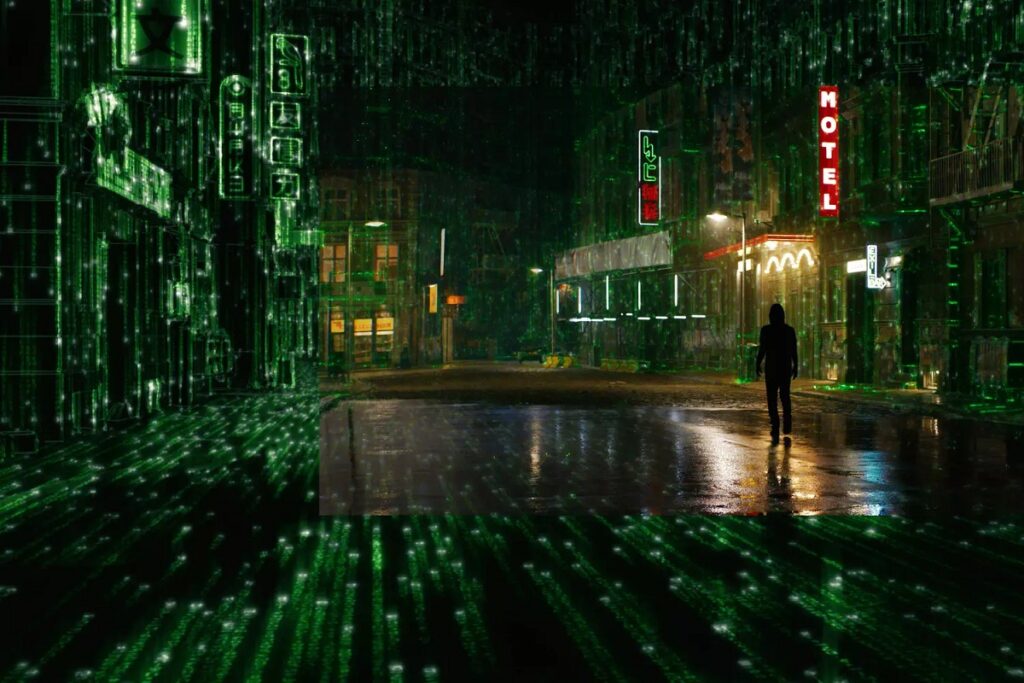Have you ever had that nagging feeling that reality is not quite what it seems? One physicist might be onto something big, proposing that we could be living inside an elaborate computer simulation. This theory, long a staple of science fiction—from iconic films like The Matrix to Elon Musk’s comments on the topic—is starting to gain momentum in the scientific domain, thanks to the efforts of Melvin Vopson, a physicist at the University of Portsmouth.
The Genesis of the Simulation Hypothesis
The idea that our universe might be a computer-generated simulation isn’t entirely groundbreaking; it’s been pondered by scientists and philosophers alike for an extended period. What sets Vopson’s perspective apart is his innovative approach. Over recent years, he has proposed several intriguing hypotheses suggesting our reality could be synthetic. His work distinguishes itself through a rigorous exploration of the underlying physics, merging concepts from quantum mechanics, information theory, and thermodynamics to bolster his provocative assertions.
Revolutionising Our Understanding of Mass, Energy, and Information
At the core of Vopson’s theory is a groundbreaking notion he introduced in 2019, which posits that information possesses mass—a measurable, finite mass. This concept builds on the established idea that information is a tangible entity, suggesting that particles across the universe may store information similarly to how DNA houses genetic data. This “new principle of equivalence” between mass, energy, and information could, according to Vopson, serve as the foundational bedrock of our universe. Just as energy and mass are interchangeable as per Einstein’s renowned equation, E=mc², Vopson argues that information might represent another form of matter.
Introducing the Second Law of Infodynamics
But Vopson didn’t stop there. In 2022, he unveiled a contentious new law: the Second Law of Information Dynamics (or “infodynamics”). This law directly challenges a core tenet of traditional physics: the Second Law of Thermodynamics, which asserts that entropy (or disorder) tends to increase over time in a closed system. In contrast, Vopson contends that the entropy of information in the universe could remain constant or even decrease, defying conventional thermodynamics.
In layman’s terms, Vopson suggests the presence of a compensatory mechanism in the universe that counteracts the typical rise in entropy. This could explain why information resembles a form of matter and contributes significantly to the stability of the universe’s expansion.
Vopson’s belief is that if we could observe a decrease in entropy in the processing of information, it might offer the first substantial evidence that our universe operates in a digital format, akin to a computer simulation. According to this theory, the universe optimises and compresses data in line with the principles of information theory.
Funding the Quest for Proof
To delve deeper into his theories, Vopson initiated a crowdfunding campaign aiming to raise £195,000 (approximately $230,000 USD) for research to validate or nullify his hypotheses. Although the campaign didn’t fully meet its target, it highlights his dedication to pushing the frontiers of science in a domain still regarded as speculative. Vopson dreams of conducting experiments that may eventually establish a clear linkage between information theory and the essential nature of reality, potentially providing tangible proof of what has often seemed the realm of science fiction.
Is It Possible?
Could we genuinely be navigating through a simulation? Should Vopson’s calculations and hypotheses gain validation, we might stand on the brink of a scientific breakthrough that transforms our understanding of existence itself. While his work remains in the preliminary stages, the ramifications are astounding: if information is indeed a form of matter, our universe could be a digital fabrication, placing us all within a vast computer program reminiscent of The Matrix.
For the moment, Vopson’s concepts stay speculative, but his research represents an exhilarating advance in the ongoing discourse about the essence of reality. As technology progresses, we may soon possess the means to genuinely test these daring theories and discover whether we inhabit a world orchestrated by higher intelligence or simply exist as data points in an immense cosmic simulation.
This theory challenges everything we thought we knew about life, the universe, and our place within it. If proven true, it would not only ignite a scientific revolution but also provoke a profound philosophical shift. One can only wonder; perhaps one day, we’ll uncover exactly how deep the rabbit hole goes.







